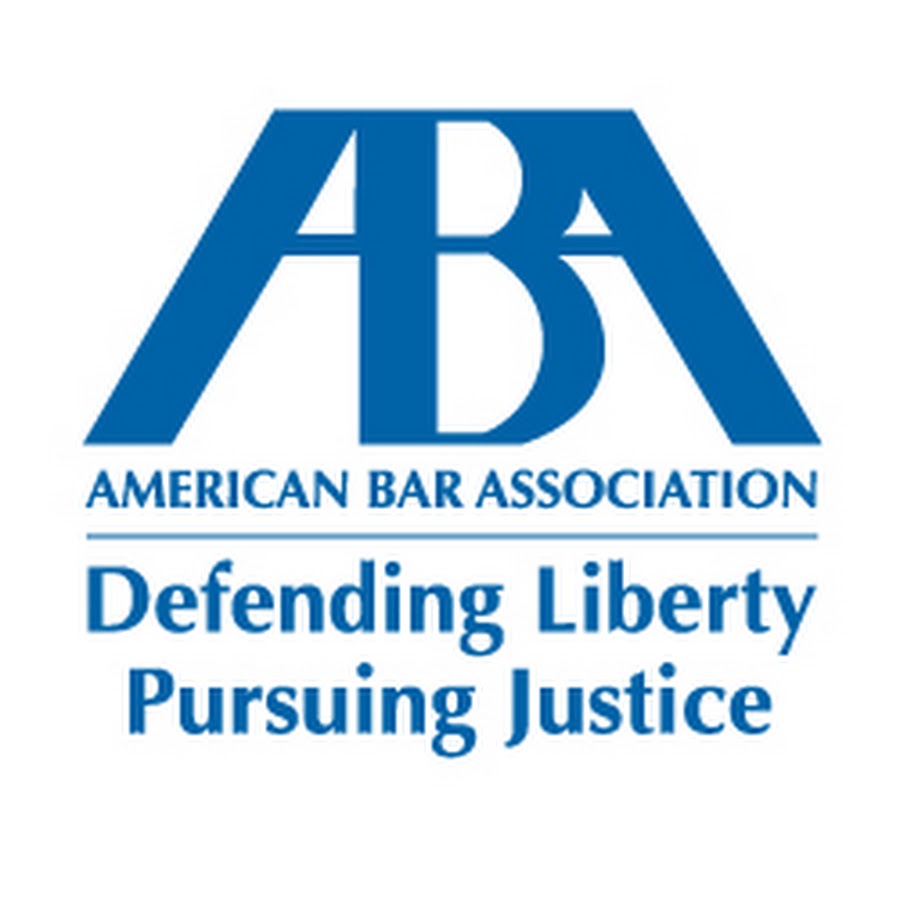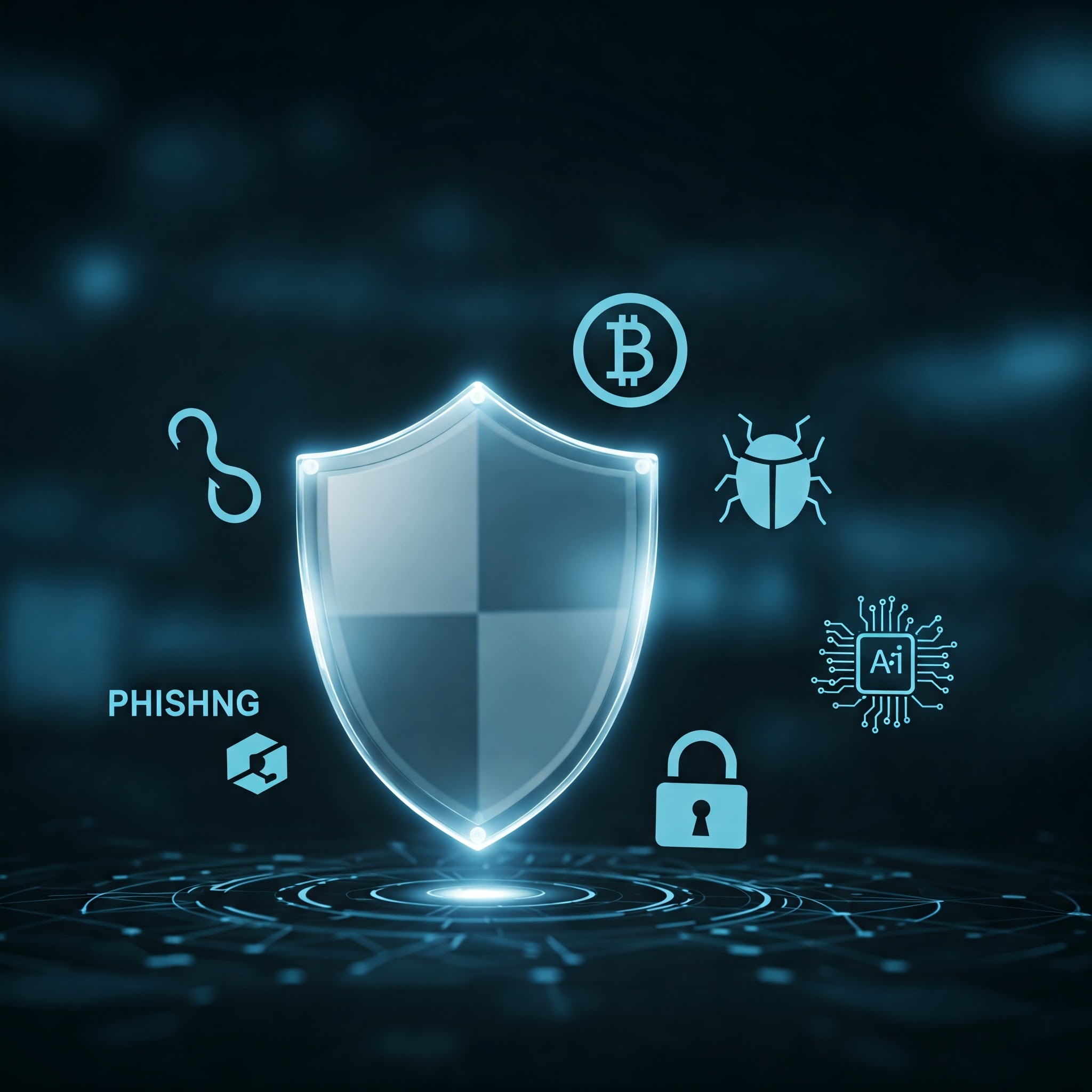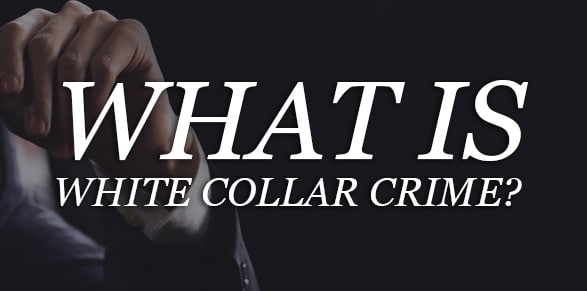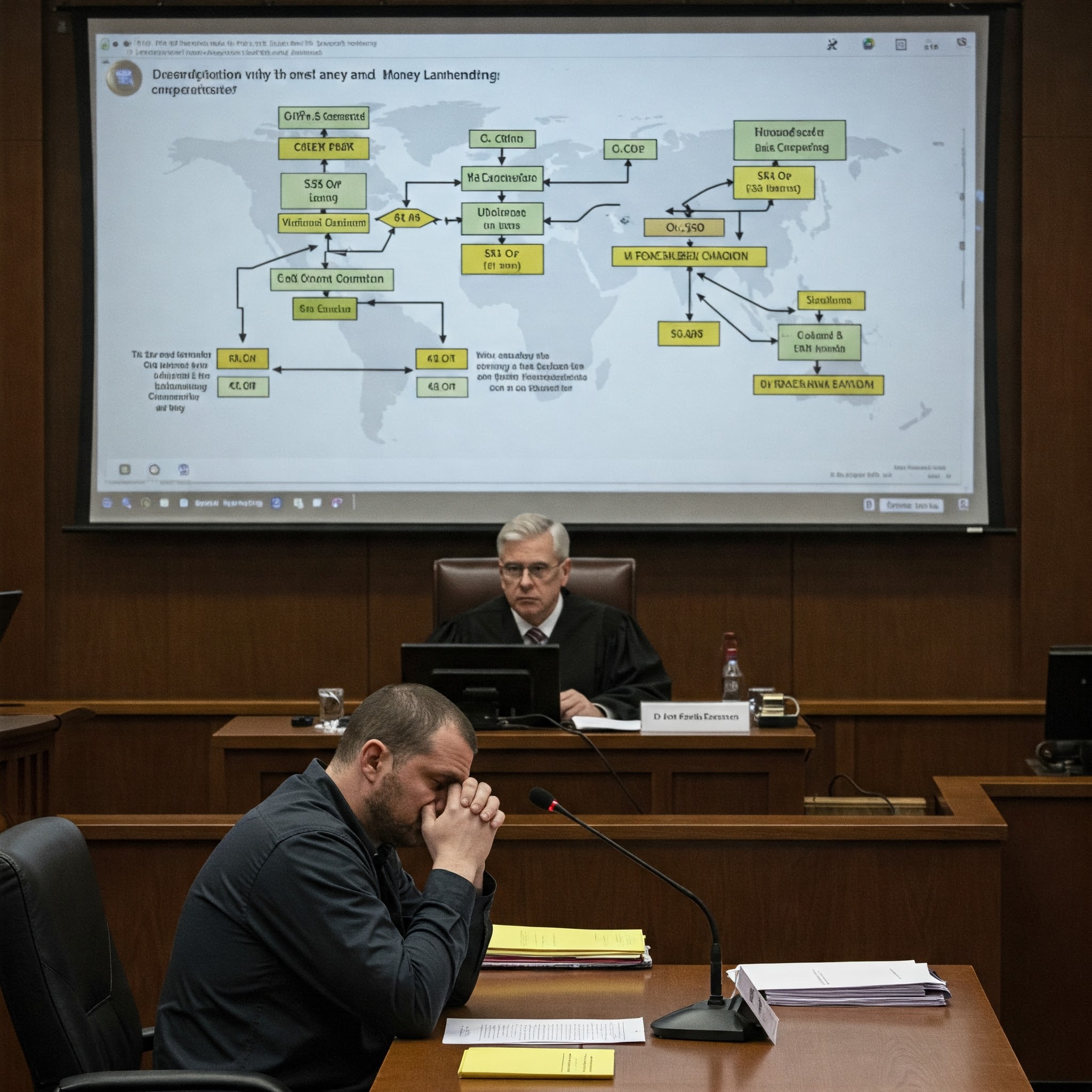
Acting Assistant Attorney General Kenneth A. Blanco Speaks at the American Bar Association National Institute on White Collar Crime
Remarks as prepared for delivery
Introduction
Good morning, and many thanks for that kind introduction. Thank you for the invitation to address you today, and congratulations for hosting the 31st annual American Bar Association (ABA) White Collar Crime conference.
Twenty-eight years ago, I started as a prosecutor at the Miami-Dade State Attorney’s Office, and almost a decade later, I joined the U.S. Attorney’s Office in the Southern District of Florida as an Assistant U.S. Attorney. I was fortunate as a young lawyer to work and learn in these two offices. I learned from the best trial lawyers in the country, not only how to try cases, but how to make good decisions, to be a good lawyer, and to understand the true role of a prosecutor. There is no way I can repay all those wonderful people for teaching me so much. I am proud to be an alumnus of both of those offices, and I am excited to see some of those people I worked with during that time here today.
This morning, I want to tell you a little bit about the Criminal Division – who we are, and some of the things we are doing in the areas of white collar crime and corruption in the international arena.
About the Criminal Division
Today, I have the honor and the privilege of speaking with you as the Acting Assistant Attorney General for the Criminal Division of the U.S. Department of Justice. For more than a decade, I have served in the Criminal Division as a Deputy Assistant Attorney General with a portfolio that included, through the years, the Money Laundering and Asset Recovery Section, the Narcotic and Dangerous Drug Section, the Organized Crime and Gang Section, the Child Exploitation and Obscenity Section, and my portfolio also included responsibilities over matters in Colombia, Afghanistan, Mexico and Panama.
Many of you in this room are well acquainted with the work of the Criminal Division and its roughly 600 attorneys spread across 17 sections and offices, mostly in Washington D.C., but some stationed in offices around the country and many stationed in offices overseas and around the world. As you all know, the Criminal Division’s investigations and prosecutions run the gamut of white collar crime cases – fraud, bribery, public corruption, organized crime, trade secret theft, money laundering, securities fraud, government fraud, healthcare fraud and computer and internet fraud – to name a few.
You are also well aware that the already substantial international aspects of the Criminal Division’s white collar criminal enforcement efforts—and in particular its Foreign Corrupt Practices Act (FCPA), Bank Secrecy Act (BSA) and Kleptocracy efforts, to cite just three examples – are only becoming more pronounced with each passing year. Whether uncovering a multinational bribery scheme or seeking to recover illegally derived assets associated with investment funds owned by a foreign government, or protecting our financial system from harm, many of our biggest investigations have an increasingly substantial international component, and they often involve multiple foreign jurisdictions.
As cross-border crime continues to proliferate – and it is most certainly proliferating – the department’s efforts to combat the most sophisticated white collar criminals require our prosecutors and the agents with whom they work to go all over the world to seek the evidence and witnesses necessary to build their cases, and to collaborate with our foreign counterparts. Because crimes against the United States are more frequently being committed from beyond our U.S. borders, and overseas criminal actors are availing themselves of our financial system, we have to be nimble in order to coordinate quickly, effectively and fluently with our counterparts abroad. This reality, which is probably not new to those of you attending this conference, requires the department to make frequent and effective use of the various mechanisms of international cooperation with our foreign partners that permit for evidence exchange and fugitive apprehension.
Before I discuss some concrete examples of the ways in which the Criminal Division is working with our international partners to bring significant multi-jurisdictional cases, I wanted to provide as a backdrop to that discussion a recent notable development in the department’s – and indeed the entire U.S. government’s – efforts to combat transnational crime. This past December, the Financial Action Task Force (FATF) – an independent inter-governmental body that develops and promotes policies to protect the global financial system against money laundering, terrorist financing and the financing of proliferation of weapons of mass destruction – issued its mutual evaluation report on the United States. I am proud to say that the headline of that report is that the United States has “a well-developed and robust anti-money laundering and counter-terrorist financing regime through which it is effectively investigating and prosecuting” transnational criminal actors and the money launderers who help them conceal their ill-gotten gains. The report also noted the effectiveness of our efforts to work cooperatively with our international law enforcement partners. Frankly, I think the United States has always been one of the leaders and trail blazers in this area.
The report did raise concerns about the U.S. government’s continued work to prevent the abuse of legal entities – shell companies – to “obfuscate the source, ownership, and control of illegal proceeds,” essentially, continuing to look at and understand and get behind beneficial ownership. We at the department – and in the Criminal Division in particular – remain sharply focused on understanding the ownership structure and the apparent ease with which criminal organizations and individuals use shell companies to move and ultimately conceal criminal proceeds. This is a global problem requiring a vigorous response. Piercing the corporate veil to determine the true owner of bank accounts and other valuable assets more often than not requires us to undertake a time-consuming and resource-intensive process. Grand jury subpoenas, witness interviews, and even foreign legal assistance requests are sometimes required to get behind the outward facing structure of these shell companies.
The department therefore views the customer due diligence final rule announced by the U.S. Treasury Department last May as a critical step toward greater transparency and a reporting system, which makes it harder for sophisticated criminals or kleptocrats to hide their identities and their illicit proceeds behind opaque corporate structures. And we will be taking a hard look at compliance with this rule in the course of our future investigations.
The law enforcement benefits of gathering this information are substantial and, in my view, indisputable – especially in the kinds of large, international white collar investigations that the Criminal Division’s prosecutors are pursuing, and those being pursued by our international partners.
Multi-Jurisdictional Prosecutions
In light of the increasingly international scope of the Criminal Division’s white collar enforcement efforts, that last point is critical. To obtain timely and substantial beneficial ownership information or evidence that will lead to understanding these complex corporate structures requires international cooperation. And just as we receive significant assistance from our foreign partners in our investigations and prosecutions, so too do we provide significant assistance to them. This balanced model of reciprocity in information sharing is a vital tool in the modern prosecutor’s toolbox – whether the prosecutor is sitting in the United States, Europe, South America or elsewhere.
This reality – reciprocal information sharing – is giving rise to a developing trend, especially as it relates to international enforcement of criminal laws in the white collar space. And the emerging trend is this: due in part to the significant assistance we provide to our foreign partners, there has been an increase in multi-jurisdictional prosecutions of criminal conduct, particularly when that conduct is transnational in nature and when several countries have prosecutorial authority over it.
This is no longer the future, it is the here and now of global criminal investigations. Countries around the world have strengthened their domestic laws and central authorities, and prioritize white collar prosecutions. This means – and many of you have likely already noticed this – a company operating in country X whose employees bribe a public official in violation of the FCPA, may be investigated and prosecuted by the United States, but also by several other countries with jurisdiction over the conduct that gave rise to the prosecution. Indeed, and especially in the area of bribery of foreign officials, countries around the world are strengthening their laws, investigating and bringing impactful cases. As part of our cooperation with our international partners, where appropriate, we seek to reach global resolutions that apportion penalties between the relevant jurisdictions so that companies seeking to accept responsibility for their prior misconduct are not unfairly penalized for the same conduct by multiple agencies.
I spent the first part of this week meeting with counterparts in Bogota, Colombia. Last week, I met with our Mexican counterparts, spoke with the Dominicans for over an hour via phone, and before that, with the Panamanians just a few weeks ago. At the end of this month, I am hosting our Argentine counterparts in Washington D.C. to collaborate and coordinate on financial crime and corruption matters. All these meetings are at the highest levels of government, and at all levels of government. Meetings such as these – among an international community of prosecutors, investigators, public security personal and government financial investigative and regulatory institutions – are not rare anymore; at least not with us. Generally, prosecutors in much of the world understand that investigating and prosecuting transnational crime necessitates transnational cooperation. Indeed, just as crime is increasingly transnational, so must be its enforcement. And just as criminals seek to exploit geographical boundaries to protect themselves and their illegally derived assets, so must the mechanisms of international cooperation serve to disrupt their ability to do so.
In the area of evidence gathering the past several years, I have witnessed the significant increase in incoming requests for legal assistance from our foreign partners. Countries are making more and more efforts to affirmatively prosecute international corruption in their own countries.
Of course, formal assistance pursuant to bilateral or multilateral treaties are not our only tools. The United States and countries around the world also share evidence and information with one another pursuant to the principle of reciprocity, or through various informal mechanisms. Indeed, the Department of Justice and its investigative agencies post attachés in embassies all over the world. One of the primary goals of the attachés is to provide and receive information related to ongoing investigations and prosecutions. Such information may provide significant leads to us or our counterparts. The department recognizes that communicating with these foreign counterparts must keep pace in the age of instantaneous communication.
Just as your client’s businesses span the globe, the Criminal Division’s approach to large, complex transnational and white collar investigations is truly global in nature and the results that we have obtained demonstrate and reinforce the importance of working with and maintaining true partnerships with our counterparts aboard.
U.S. v. Odebrecht
One example I will begin with is a FCPA case, Odebrecht, a case that squarely demonstrates how the world is partnering to investigate and prosecute corruption. Among the most useful tools in the department’s arsenal to prosecute corruption is the enforcement of the FCPA’s anti-bribery provisions. These prosecutions are necessary to combat global corruption that stifles economic growth, creates an uneven playing field for businesses and corporations, and threatens the national security of the United States and other civilized nations. Often, however, the principal acts of criminality are committed in foreign countries and often by foreign actors.
In December of last year, Brazilian construction conglomerate Odebrecht and Brazilian petrochemical company Braskem pleaded guilty and agreed to pay a combined total penalty of around $3.5 billion to resolve charges with the United States, Brazil and Switzerland—three jurisdictions – arising out of their schemes to pay hundreds of millions of dollars in bribes to government officials around the world. Odebrecht and Braskem engaged in a world-wide bribery scheme designed to improperly obtain and retain business contracts in 12 countries: Angola, Argentina, Brazil, Colombia, Dominican Republic, Ecuador, Guatemala, Mexico, Mozambique, Panama, Peru and Venezuela. As part of the scheme, Odebrecht and its co-conspirators created and funded an elaborate, secret financial structure within the company that operated to account for and disburse bribe payments to foreign political parties, foreign officials, and their representatives, including through U.S. financial institutions and offshore shell companies set up from within the United States.
Multiple other countries have opened investigations and prosecutions of Odebrecht and individuals allegedly involved in the scheme. It has been reported that more than 10 additional countries have publicly confirmed their own investigations into the corruption at Odebrecht.
Indeed, in some countries, domestic legislation mandates the immediate initiation of criminal investigations when confronted with evidence of public corruption. Many of our foreign partners have been acting swiftly to bring corrupt officials to justice in their countries. For example, Brazil has already charged more than 70 individuals just in this one case.
As a general matter, the Criminal Division’s Fraud Section, in coordination with the Office of International Affairs, is able effectively to share information and evidence with foreign authorities. Also, it is often the case that plea agreements with companies require them to cooperate by continuing to provide evidence and information to the prosecution team. The combination of those two phenomena often position our prosecution teams with the ability to assist our foreign counterparts to advance their work. Ideally, of course, the consequence of the enforcement efforts of the department is to encourage voluntary compliance with the FCPA and other applicable domestic laws that disallow conduct, such as bribery to foreign officials.
Let me just add that, as it relates to the FCPA, from a policy perspective, we like to see more countries enforcing anti-bribery laws. Since the 1980s, there has been a growing international recognition that all countries should aim to disrupt corrupt payments in order to create an even playing field for global business. In the absence of effective domestic anti-corruption laws or resources to prosecute violators of those laws, we would be left with geographical gaps to a collective global effort to halt corruption in its tracks. Allow me to move on to another case example to highlight a few other points.
1Malaysia Development Berhad
In 2016, the department filed the largest single action ever brought by the Kleptocracy Initiative, marking a significant milestone in the department’s ongoing fight against global corruption, involving two bond offerings in 2012 through which 1Malaysia Development Berhad (1MDB) raised money that was siphoned off by the corrupt officials and their associates.
The stated purpose of the 2012 bond offerings was to allow 1MDB to invest, for the benefit of the Malaysian government, in certain energy assets. But almost immediately after receiving the proceeds of these two bond issues, roughly 40 percent of the funds raised –approximately $1.37 billion – was transferred out of 1MDB’s accounts. The money went into the Swiss bank account of a shell company incorporated in the British Virgin Islands. The complaint alleges that the name of this shell company was intended to suggest an affiliation with a legitimate company involved in the bond offering but, in fact, the Swiss bank account was controlled by corrupt officials.
This case is yet another example of what happens when individuals and criminal organizations are able to use shell companies to move, and ultimately conceal, the proceeds of crime and kleptocracy. Gaps in the legal regimes across the globe – including, as I have already noted, here in the United States – allowed these criminals to avoid disclosing the ultimate beneficial owners of the accounts to which 1MDB funds were diverted. The significant assistance we received from our international partners was critical in identifying and restraining assets in this case.
Other Examples
Additionally, in our prosecution of Rolls Royce, the UK-based company paid the United States about $170 million as part of an $800 million global resolution of anti-corruption-related investigations in three countries – the United States, United Kingdom and Brazil. Rolls Royce entered into a deferred prosecution agreement (DPA) in the United States, as well as a DPA in the United Kingdom, the first time the U.S. and UK’s Serious Fraud Office (SFO) entered into such a coordinated resolution.
In our prosecution of Netherlands-based VimpelCom, one of the largest telecom companies in the world, a global $800 million resolution was reached to resolve $114 million dollars of illegal bribe payments. That resolution, which involved a guilty plea by VimpelCom’s Uzbek subsidiary and DPA with VimpelCom, also included settlements with the Public Prosecution Service of the Netherlands, as well as the Securities and Exchange Commission (SEC). As you can see, the trend is a global effort to prosecute corruption, and that trend is not slowing down.
I want to underscore the extent of our international cooperation in white collar enforcement by noting that, in kleptocracy cases, one of our goals is to return the proceeds of the kleptocrat’s crimes to those harmed by their criminal conduct. Just last year, for example, the department returned $1.5 million to Taiwan that constituted proceeds from the sale of a forfeited New York condominium and a Virginia residence that the United States alleged were purchased with bribe money paid to the family of Taiwan’s former President Chen Shui-Bian. Our ability to identify and forfeit those properties was the result of extensive cooperation with the Taiwan Supreme Prosecutor’s Office, and it is our hope that the return of the funds to the Taiwanese people sends a strong message about our commitment to vigorous and effective cooperation in international criminal enforcement.
Conclusion
Before I conclude, I would be remiss if I did not comment on the Fraud Section’s “Pilot Program.” Last year, the Fraud Section implemented a one-year “Pilot Program” for FCPA cases, to provide more transparency and consistency for our corporate resolutions. The “Pilot Program” provides our prosecutors, companies and the public clear metrics for what constitutes voluntary self-disclosure, full cooperation and full remediation. It also outlines the benefits that are accorded a voluntary self-disclosure of wrongdoing, full cooperation and remediation. The one-year pilot period ends on April 5. At that time, we will begin the process of evaluating the utility and efficacy of the “Pilot Program,” whether to extend it, and what revisions, if any, we should make to it. The program will continue in full force until we reach a final decision on those issues.
In closing, let me just say a few things:
It is clear that global investigations of corruption are on the rise. We are seeing that often within a close temporal proximity of our prosecutions, other countries are also taking action. It is no longer just us and a few other countries.
Something is happening in the world today; you can feel it. It is a global movement, getting stronger and stronger each day with every case we make. Countries, all the ones I mentioned earlier, and many others, are all moving in the same direction, more together than ever, pursuing corruption.
The Criminal Division remains committed to doing its part by vigorously investigating and prosecuting international crime when it violates U.S. laws, and by remaining committed to international collaboration in our nations’ shared struggle to safeguard our citizens, our markets and financial systems, and our networks.
As I said last year at a corruption and white collar crime forum in Bogota, Colombia, the current trend of international cooperation among our counterparts who are all fighting transnational financial corruption and other white collar crimes reminds me of the 1960s song made popular by the singing group Martha and the Vandellas – the lyrics of which are the appropriate message for all the corrupt officials and bad actors, foreign and domestic: Nowhere to run baby, Nowhere to hide.
Thank you for your time today. Have a wonderful rest of the day.











Be the first to comment